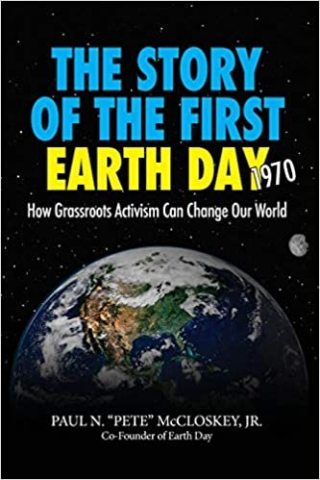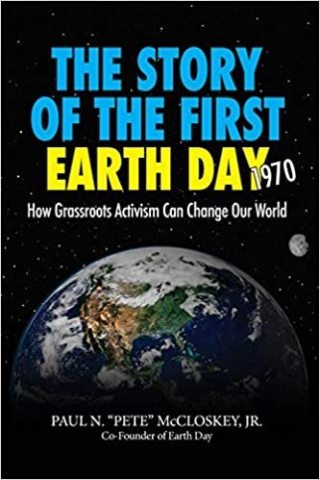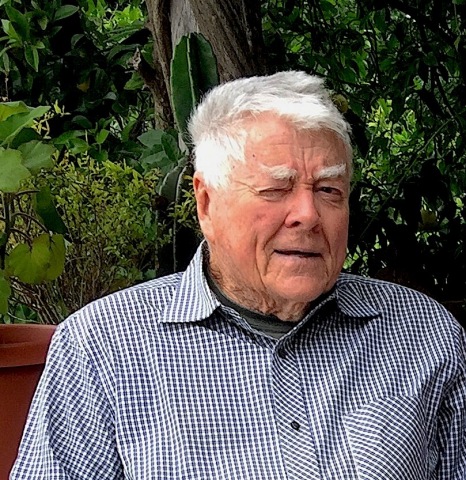RUMSEY, Calif.--(BUSINESS WIRE)--Co-founder of the first Earth Day, former Congressman Pete McCloskey, wrote a new book about the political and international impact the event created a half century ago on April 22nd. He is delivering copies to each member of the House of Representatives and the US Senate this week.
The book, entitled, The Story of the First Earth Day - How Grassroots Activism Changed the World is a tribute to Democratic US Senator Gaylord Nelson. Nelson was an early environmental champion in the Senate. He wanted to inspire people to help solve environmental problems by organizing what he called a "teach in," similar to those being organized on the Vietnam War. Nelson wanted the event to be both bipartisan and bicameral and was seeking a Republican to co-chair at the event. McCloskey, a "Teddy Roosevelt type Republican" cared about nature and was enthusiastic about the concept.
Earth Day was a huge success. Some 20 million people around the world participated in what was then the largest demonstration in American history. The event also became the beginning of the international environmental movement.
In addition to being a tribute to Senator Nelson, McCloskey also tells the little-known story of Denis Hayes- the young man Nelson hired to coordinate the event. Hayes had been student body president of Stanford University who had spent three years "hitchhiking around the world," and going to Harvard law school. Not only did Hayes and a "scruffy little crew of activists" organize the first Earth Day. Afterwards Hayes organized a political action that motivated far reaching political results. McCloskey's book details the creation of "The Dirty Dozen" campaign targeted twelve of the worst members of congress on environmental issues and organized grass roots attempts to defeat them at the polls. Much to everyone's shock, they defeated seven of the twelve and "all of a sudden every member of congress wanted to look like John Muir," remembers McCloskey.
The public education power of Earth Day and the political impact of the Dirty Dozen campaign was responsible for the major environmental laws that were all passed in the following couple of years.
The Clean Air Act, The Clean Water Act, The Endangered Species Act (McCloskey was one of the lead authors), and The Marine Mammals Protection Act were among those laws. President Nixon, who was worried about facing another early Senate leader, Edmund Muskie, on green issues, responded by signing all of those bills and also establishing the Environmental Protection Agency and the Council on Environmental Quality.
McCloskey is 92 and lives in Northern California. He has stayed active in politics and written a number of books about politics and the US Constitution. McCloskey was a Marine rifle platoon leader in Korea and written several books about his experiences in combat. He earned two Purple Hearts, a Silver Star and the Marine's highest award, The Navy Cross.
The book is available to the public on Amazon.com.



